The Black Queens’ future is in jeopardy as coach Nora Hauptle, who has been instrumental in the team’s resurgence, considers taking over as head coach of Zambia’s Copper Queens.
Hauptle’s potential departure could significantly set back the progress made by the team, with some experts predicting it could set them back by a decade.
Hauptle, a Swiss coach with a UEFA Pro License, took the reins of the Black Queens after the team struggled under previous management. Under her leadership, the Black Queens went through a remarkable transformation.
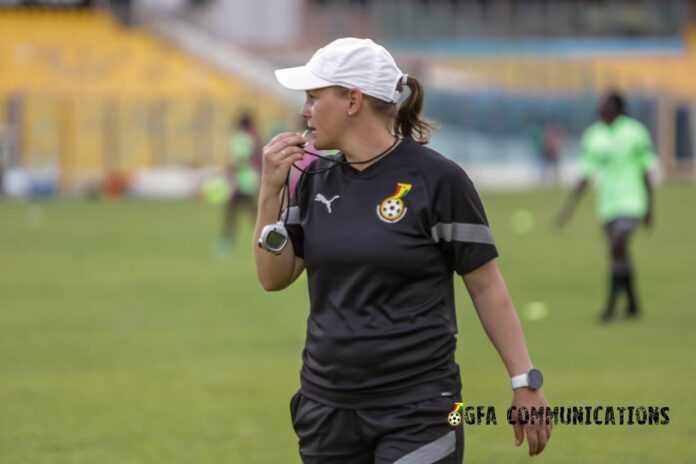
She introduced a clear tactical identity to the team and oversaw an impressive run of results, including winning 10 out of 11 matches, with the only loss coming against Zambia.
The team scored 34 goals and conceded only two goals during this period, showcasing a disciplined and effective approach to the game.
Hauptle’s first major project, “Mission Volta,” emphasized a fresh start for the Black Queens, promoting a culture of commitment and determination.
Her leadership brought stability to a team previously plagued by internal issues, including player revolts and managerial crises. Her ability to connect with the players and instill confidence resulted in the Black Queens once again becoming an attractive proposition for fans and investors.
Despite their impressive performances, the team’s success has been marred by systemic neglect of women’s football in Ghana. In 2024, the Black Queens faced limited exposure to international competition, playing only three matches, while top teams like South Africa, Nigeria, and Morocco played 12, 10, and 15 matches, respectively.
Hauptle expressed frustration with this disparity, particularly when the technical team had arranged friendlies against Senegal and Tunisia, but the required $40,000 budget was not approved.
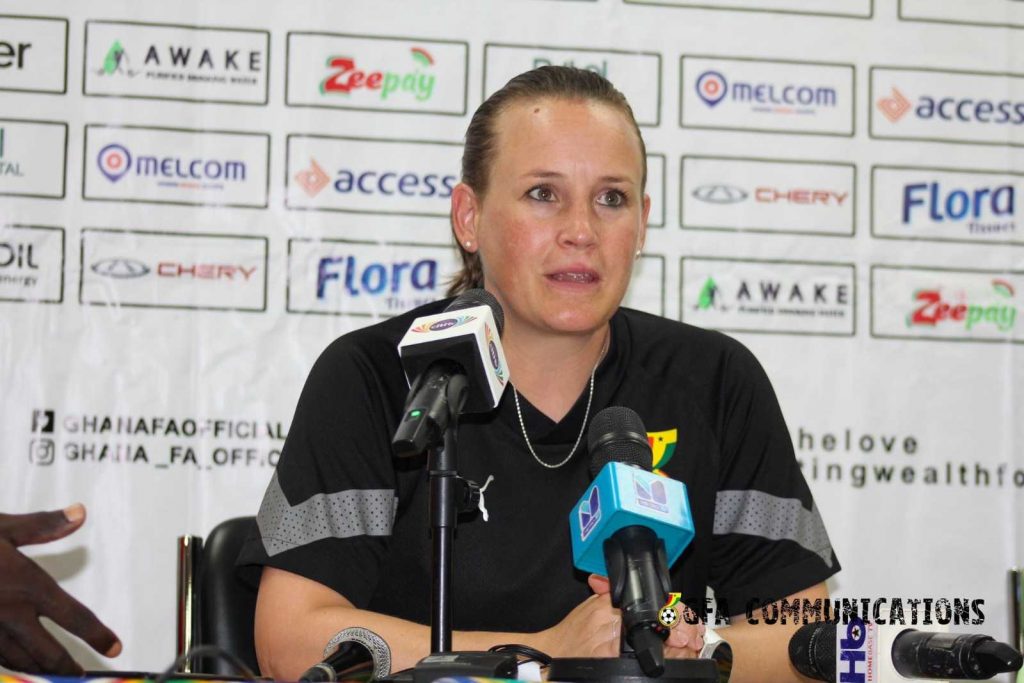
The situation became even more pressing when, ahead of the final Olympic qualifiers, the players staged a protest demanding the payment of outstanding allowances.
Hauptle stood firmly behind her team, which marked a significant departure from previous management, where players had often been victimized for speaking out.
Although the Ministry of Education eventually paid the arrears, the protest highlighted deeper issues affecting the team’s morale and preparation.
As Hauptle’s contract nears its expiry, discussions about her renewal have been ongoing for months, but reports indicate she rejected the Ghana Football Association’s (GFA) new offer.
The situation worsened during the Olympic qualifiers when Hauptle sought a loan move to Zambia to explore other opportunities, but her request was denied.
If Hauptle leaves, it will be a significant loss for the Black Queens, who have come to rely on her leadership and vision.
Although no coach is irreplaceable, sustaining the progress Hauptle made will require substantial investment. Women’s football, particularly in Ghana, can no longer operate under volunteerism or with insufficient resources.
A new coach would need both the backing of the GFA and the necessary resources to maintain the team’s momentum. Without this support, the Black Queens risk falling into the same instability that plagued them before Hauptle’s arrival.
For the sake of Ghanaian female footballers, who have worked tirelessly, it is crucial that the authorities act swiftly and decisively. Any delay or failure to invest in the team’s future could result in a missed opportunity to compete at major tournaments, such as the Morocco 2025 Women’s Africa Cup of Nations (WAFCON).
The clock is ticking, and the Black Queens’ prospects depend on the decisions made by the GFA in the coming weeks.


































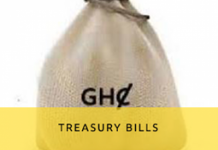





















![[FREE FREE MONEY] Predict and Win a Guaranteed GH¢200 From Us EVERY WEEK](https://wordpress.ghanatalksradio.com/wp-content/uploads/2022/02/Predict-and-Win-Final-09-03-2021-218x150.jpg)
![[Predict & Win – 8th/Oct.] WIN A Guaranteed ¢200 From Us This Week](https://wordpress.ghanatalksradio.com/wp-content/uploads/2021/10/maxresdefault-16-218x150.jpg)
![[Predict & Win – 2nd] WIN A Guaranteed ¢200 From Us This Week](https://wordpress.ghanatalksradio.com/wp-content/uploads/2021/09/maxresdefault-50-218x150.jpg)
![[Predict & Win – 25th] WIN A Guaranteed ¢200 From Us This Week](https://wordpress.ghanatalksradio.com/wp-content/uploads/2021/09/maxresdefault-36-218x150.jpg)
![[Predict & Win – 18th] WIN A Guaranteed ¢200 From Us This Week](https://wordpress.ghanatalksradio.com/wp-content/uploads/2021/09/maxresdefault-23-218x150.jpg)
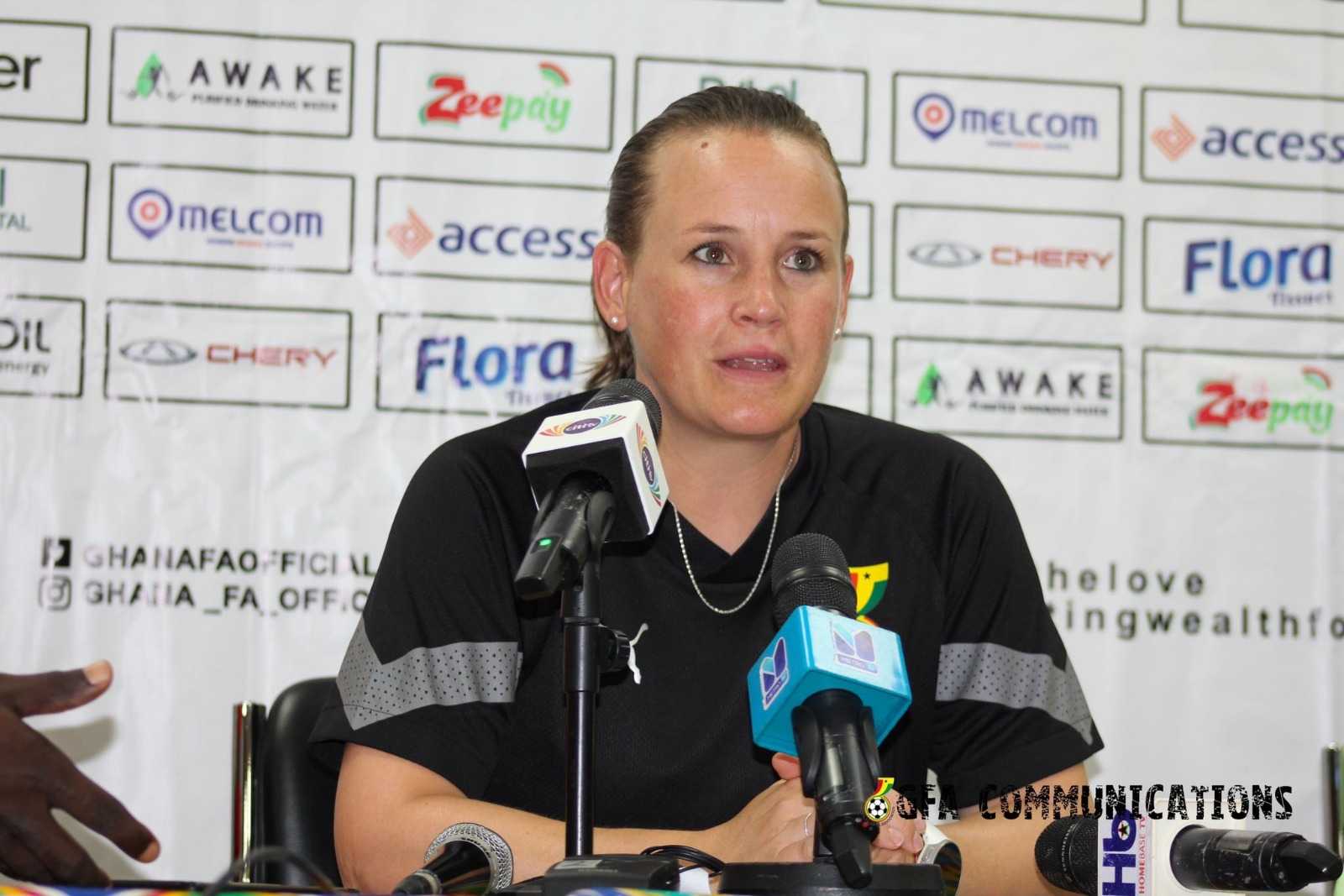


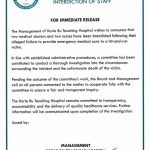






![[National cathedral] See full list of churches that have contributed since 2018](https://wordpress.ghanatalksradio.com/wp-content/uploads/2020/09/Ghana-National-Cathedral-GhanaTalksRadio-100x70.jpg)
![[Photos] Erik ten Hag officially unveiled as new Manchester United manager](https://wordpress.ghanatalksradio.com/wp-content/uploads/2022/05/20220523_123735-100x70.jpg)

![[World Cup 2022] Pulisic, McKennie lead American ‘revenge tour’ squad](https://wordpress.ghanatalksradio.com/wp-content/uploads/2022/11/image_20-100x70.png)
